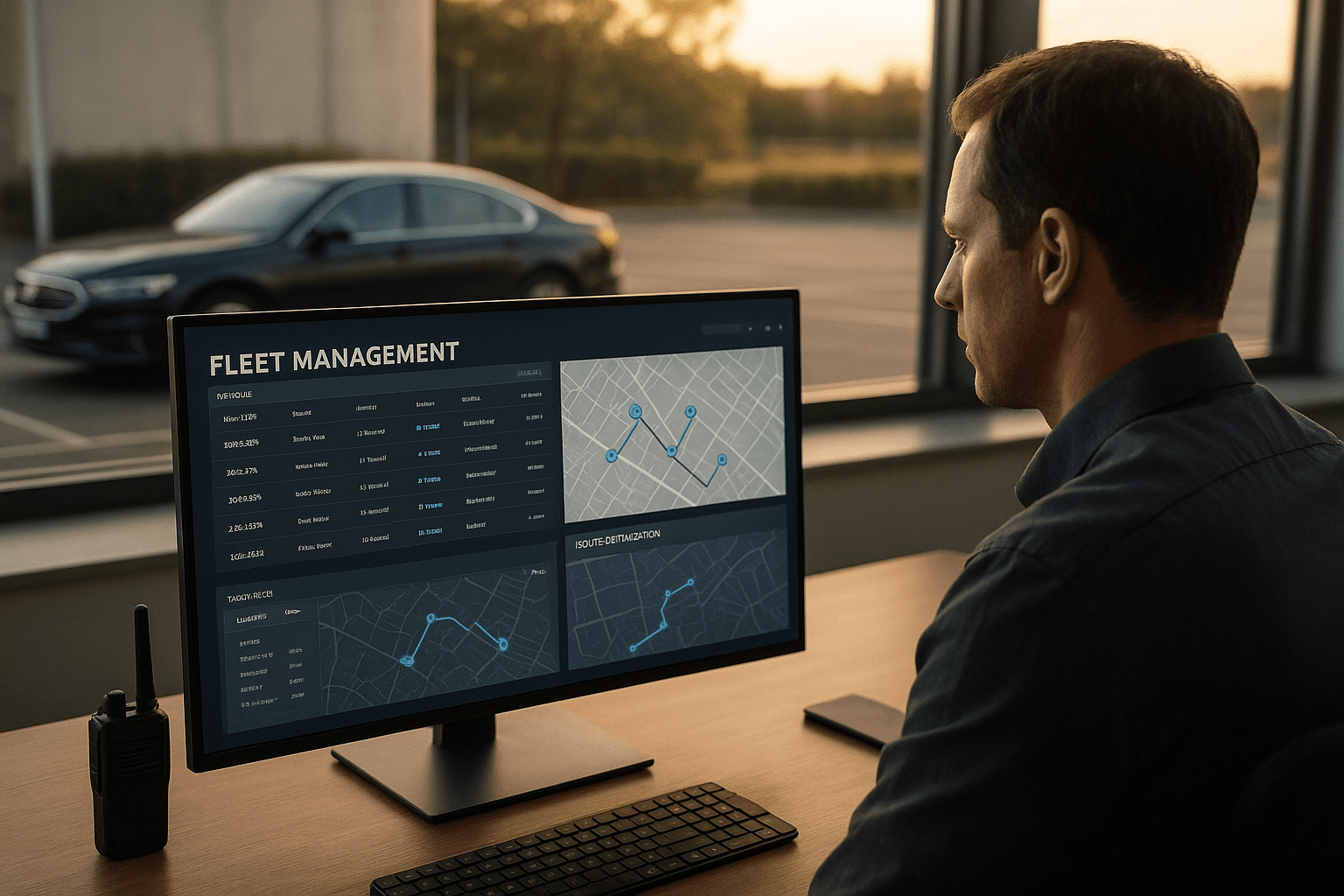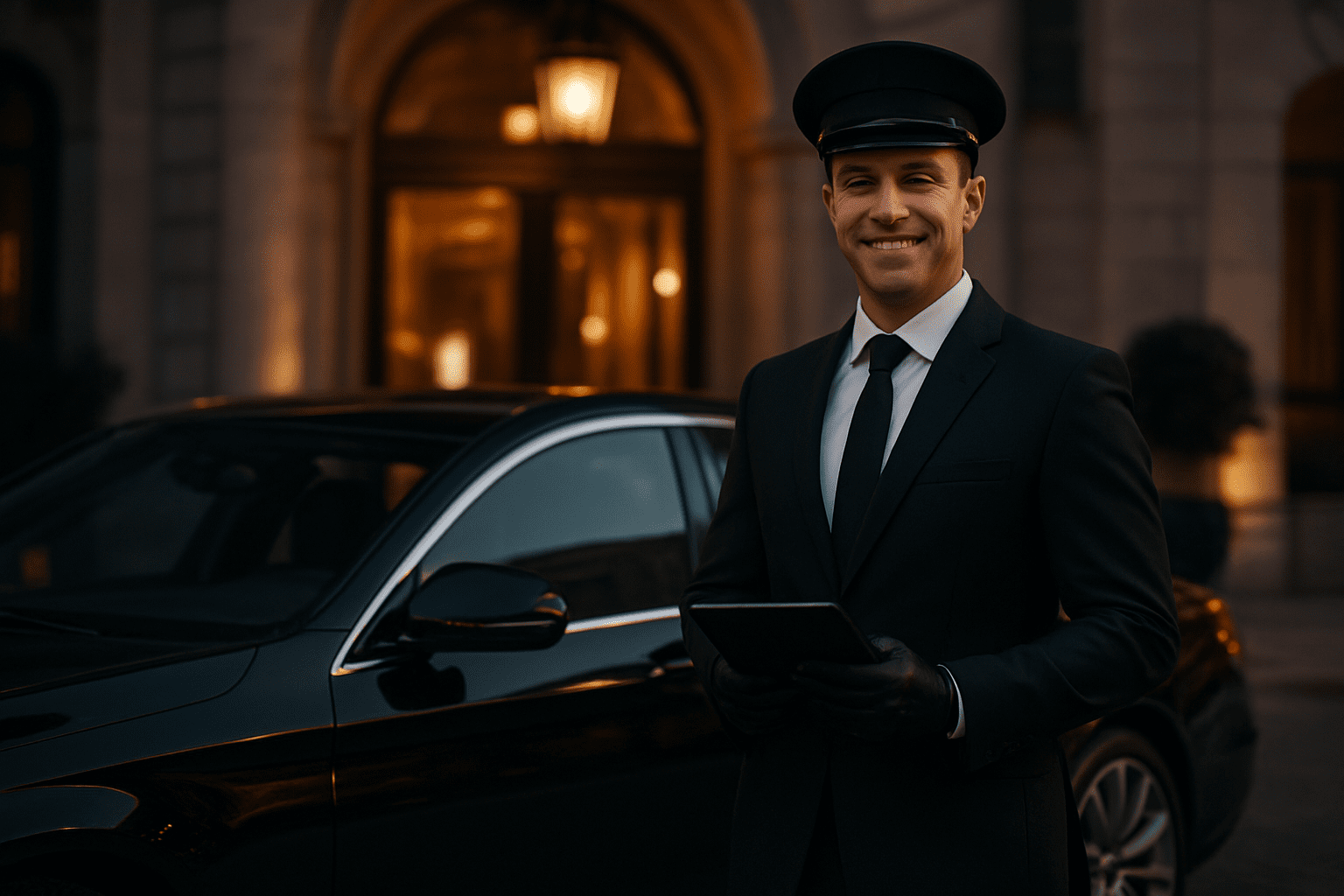Introduction
The dispatch industry is undergoing a radical transformation. Driven by digital innovation and evolving customer expectations, traditional methods of dispatching are rapidly becoming obsolete. Whether it’s coordinating a fleet of delivery vehicles or managing luxury limousine services, businesses now face increasing pressure to deliver faster, smarter, and more efficient solutions.
The future of dispatch services lies at the intersection of technology and customer-centricity. From real-time tracking and artificial intelligence to eco-conscious operations and integrated platforms, modern dispatch systems must do more than just assign drivers—they must optimize every step of the journey. This shift is not only changing how businesses operate but also reshaping what customers expect from transportation and delivery services.
In this comprehensive guide, we’ll explore the critical factors shaping the future of dispatch services. We’ll analyze the challenges and trade-offs involved, offer innovative solutions, and provide a roadmap for dispatch and limousine service providers aiming to stay competitive in the digital age.
1. The Digital Transformation of Dispatch Services
The Issue
Technology has redefined industries—and dispatch services are no exception. As we progress into the digital age, traditional dispatch models struggle to remain efficient. Many businesses still rely on outdated systems, leading to miscommunication, scheduling issues, and delays.
Moreover, customer expectations have shifted. With the rise of real-time tracking, mobile apps, and automated services, users now demand quicker, smarter, and more transparent solutions. The future of dispatch services hinges on how well companies can adapt to these demands.
The Solution
First, digital platforms offer a centralized solution to improve dispatch efficiency. With GPS tracking and real-time data analytics, companies can monitor fleets with precision. This allows better route planning and faster response times—key features in both dispatch and limousine service industries.
Second, integration with mobile apps enhances the user experience. Customers can book services, track vehicles, and communicate with drivers seamlessly. For limousine service providers, this convenience boosts customer satisfaction and retention.
Finally, cloud-based systems ensure scalability. Whether managing 10 or 1000 vehicles, these systems provide the flexibility required to expand without major overhauls. The future of dispatch services lies in agile, scalable tech solutions.
2. Artificial Intelligence and Automation: Dispatching Gets Smarter
The Issue
Manual dispatching is error-prone and inefficient. In high-volume environments like corporate fleets or limousine services, minor delays can cause major disruptions. Without intelligent systems, dispatchers can’t anticipate issues like traffic congestion or weather conditions.
The Solution
AI-driven dispatch platforms are revolutionizing logistics. They analyze historical data, predict delays, and suggest the most efficient routes. This reduces idle time, minimizes fuel consumption, and ensures timely service. In short, they create a smarter dispatch ecosystem.
Furthermore, chatbots and automated customer service tools streamline communication. Clients get immediate responses to queries, bookings, and rescheduling requests. This enhances reliability—a key competitive edge in limousine services.
Moreover, automation reduces operational costs. Companies can operate with fewer staff, minimize errors, and increase fleet utilization. As AI continues to evolve, it will become an essential component of the future of dispatch services.
3. Real-Time Tracking and Fleet Visibility
The Issue
Without real-time visibility, dispatchers operate in the dark. This lack of insight leads to missed appointments, inaccurate ETAs, and frustrated customers. For limousine services, it compromises professionalism and trust.
The Solution
GPS tracking has become a cornerstone of modern dispatch systems. It enables real-time updates for dispatchers, drivers, and customers alike. This transparency is especially vital for luxury transportation services where punctuality is paramount.
Beyond location tracking, telematics systems provide data on vehicle speed, idle time, and driver behavior. This data helps managers optimize operations and train drivers effectively. Over time, it contributes to better safety and service quality.
In the future of dispatch services, such visibility will be non-negotiable. Companies that invest in these tools will have a competitive advantage in a service-driven economy.
4. The Role of Data Analytics in Dispatch Optimization
The Issue
Many companies collect large volumes of data but lack the tools to interpret it. Without actionable insights, decision-making is slow and often based on guesswork. This leads to inefficiencies and missed opportunities.
The Solution
Advanced analytics tools convert raw data into meaningful reports. Managers can monitor KPIs like average delivery times, fuel usage, and vehicle downtime. This informs strategic decisions—from route planning to fleet investment.
Predictive analytics takes this a step further. By analyzing trends, companies can forecast demand, prepare for peak seasons, and allocate resources accordingly. For example, limousine services can anticipate high-demand weekends and adjust schedules proactively.
Additionally, customer data can guide marketing strategies. Understanding client preferences helps tailor promotions, loyalty programs, and pricing models. This level of personalization will define the future of dispatch services.
5. Customer-Centric Dispatch Solutions
The Issue
Customers expect more than just on-time arrivals—they seek transparency, control, and communication. Businesses that fail to prioritize customer experience risk losing clients to tech-savvy competitors.
The Solution
User-friendly booking platforms give clients control. Features like scheduling, driver tracking, and instant feedback ensure an engaging experience. These tools are especially relevant in limousine services, where personalization is a selling point.
Moreover, timely notifications reduce uncertainty. Text or app alerts for vehicle arrival, delays, or route changes keep clients informed. This proactive approach builds trust and loyalty.
Lastly, post-service engagement strengthens relationships. Surveys, reviews, and follow-ups show clients that their opinions matter. A customer-first mindset will be central to the future of dispatch services.
6. Cybersecurity and Data Privacy Concerns
The Issue
With digitalization comes vulnerability. Dispatch systems handle sensitive data—client details, payment information, and vehicle locations. A breach could lead to financial loss and reputational damage.
The Solution
Implementing strong cybersecurity protocols is essential. Firewalls, encryption, and multi-factor authentication protect data from unauthorized access. These measures safeguard both company operations and client trust.
Regular security audits and compliance with regulations like GDPR ensure ongoing protection. Businesses must stay updated on evolving threats and adapt their strategies accordingly.
In the future of dispatch services, cybersecurity will not be optional. It will be a pillar of responsible business practice—especially in high-value sectors like limousine services.
7. Integrating Dispatch with Other Business Functions
The Issue
Many dispatch systems operate in silos. This separation from accounting, HR, and customer support leads to duplication, inefficiencies, and misaligned objectives.
The Solution
Integrated platforms unify operations. A dispatch system connected to payroll can automatically calculate driver hours and wages. Integration with customer service platforms ensures quicker responses and case resolutions.
Such systems also support centralized reporting. Decision-makers can see the big picture, aligning dispatch performance with overall business goals.
For limousine services, integration means smoother coordination between bookings, driver schedules, and billing. The future of dispatch services depends on holistic solutions that connect the dots across the organization.
8. Environmental Sustainability in Dispatch Operations
The Issue
Fleet operations contribute significantly to carbon emissions. Clients, regulators, and investors increasingly demand sustainable practices. Ignoring this trend could hurt brand reputation and invite penalties.
The Solution
Eco-friendly dispatch solutions include route optimization to reduce fuel use and idle time. GPS systems can guide drivers through the shortest and least congested paths.
Transitioning to electric or hybrid vehicles is another impactful move. Many limousine services are adopting EVs to appeal to eco-conscious clients and reduce operational costs.
Additionally, companies can offset emissions through tree planting or carbon credits. Transparency in sustainability efforts can be a marketing asset. The future of dispatch services will be green, driven by innovation and responsibility.
9. Workforce Training and Human-AI Collaboration
The Issue
As automation grows, the role of human dispatchers changes. Without proper training, employees may feel threatened, overwhelmed, or underutilized.
The Solution
Upskilling is the answer. Dispatchers must learn to work alongside AI—interpreting data, handling complex decisions, and managing exceptions. Soft skills like communication and problem-solving become more important than ever.
Training should be continuous, covering both technical tools and customer engagement techniques. In limousine services, this ensures professionalism across the board.
By redefining roles and offering career development, businesses retain talent and boost morale. The future of dispatch services will thrive where humans and machines collaborate effectively.
10. Regulatory Compliance and Legal Challenges
The Issue
The regulatory environment for dispatch and transportation services is becoming stricter. From driver background checks to vehicle safety standards, non-compliance can result in fines or shutdowns.
The Solution
Compliance tools within dispatch software help companies stay within legal boundaries. Features like automated logs, digital inspection forms, and document reminders reduce the risk of human error.
Partnering with legal advisors or industry consultants ensures alignment with evolving regulations. For limousine services, maintaining licenses, insurance, and permits is critical.
Regular training on compliance keeps staff updated. In the future of dispatch services, proactive legal compliance will be a key differentiator and risk mitigator.
Conclusion
The future of dispatch services is bright, but only for those who adapt. Technology, data, sustainability, and customer experience are no longer optional—they are the foundation of modern dispatch and limousine service businesses. Companies must embrace change with agility, invest in digital tools, and foster a culture of continuous improvement.
Saztech Solutions stands at the forefront of this evolution. With expert dispatch systems and responsive customer support, they help businesses thrive in a competitive landscape. Visit Saztech Solutions to explore how their services can future-proof your operations.
Home | About Us | Pricing | Get Started | FAQ | Dispatch Daily | Contact Us
WhatsApp | Facebook | LinkedIn




Leave a Reply